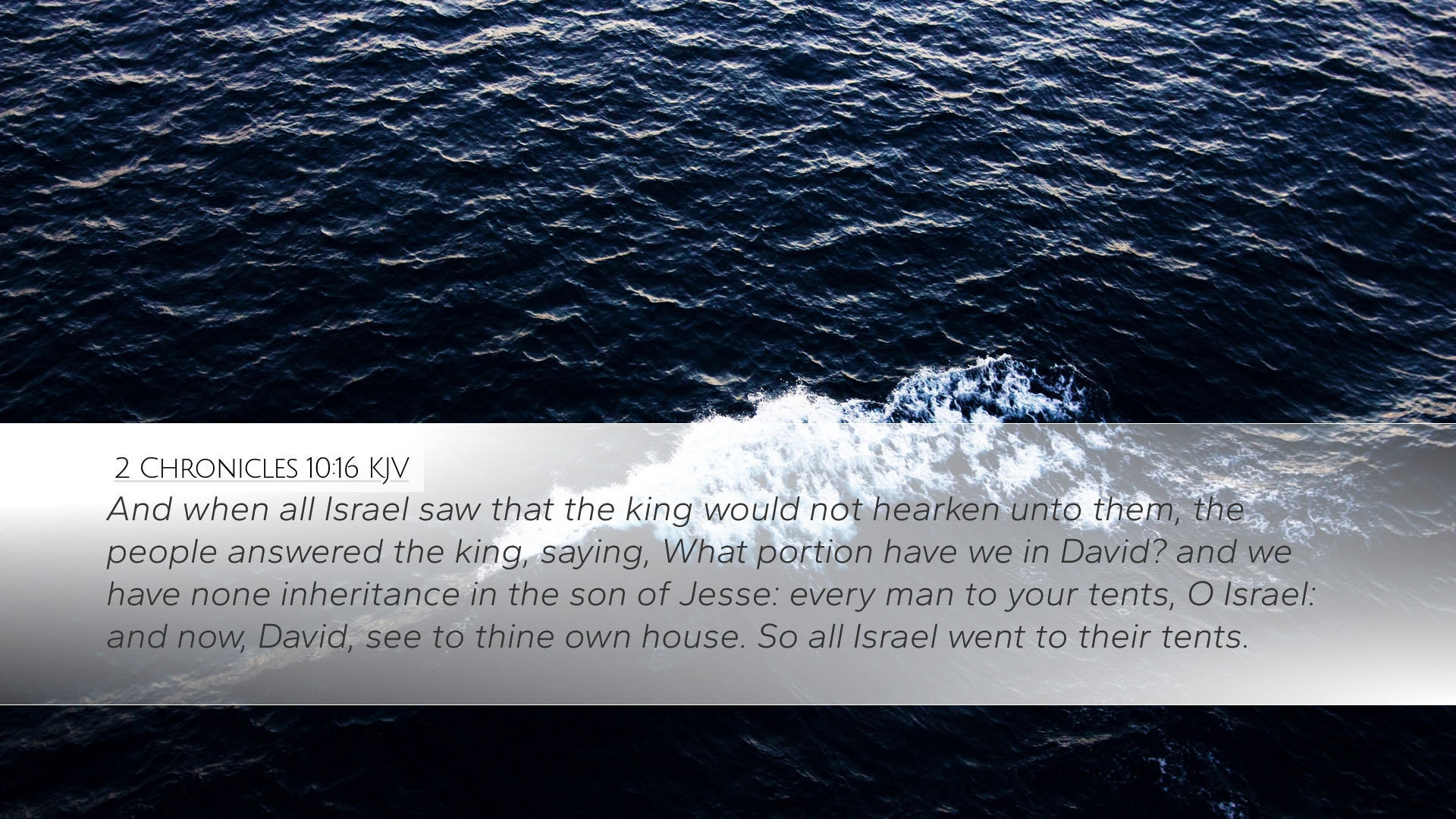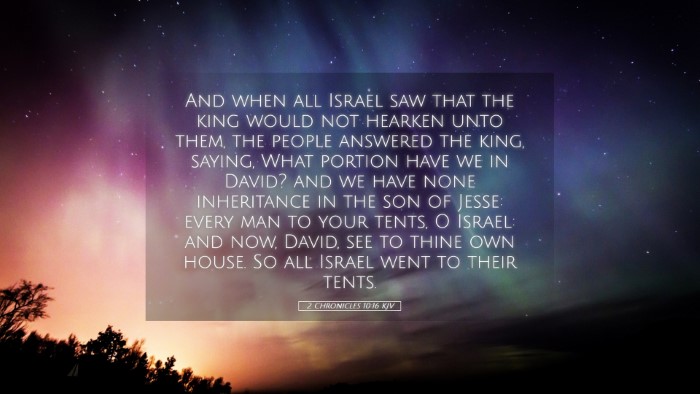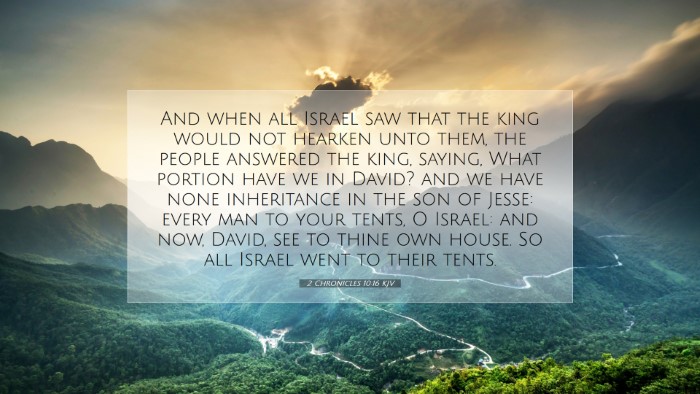Commentary on 2 Chronicles 10:16
2 Chronicles 10:16 states:
“And when all Israel saw that the king would not hearken unto them, the people answered the king, saying, What portion have we in David? and we have none inheritance in the son of Jesse: every man to your tents, O Israel: and now, David, see to thine own house. So all Israel went to their tents.”
Contextual Overview
This verse occurs in a pivotal moment in Israel’s history, following the reign of Solomon as King and the ascension of Rehoboam, Solomon's son. The context encompasses the demands of the Israelites for a lighter yoke after years of heavy taxation and labor. Here, Rehoboam’s refusal to compromise led to a significant division within the kingdom.
Initial Rejection of Rehoboam
Matthew Henry notes that Rehoboam's response exemplifies a lack of wisdom and consideration for his people. He rejected the counsel of the elders, who advised gentleness, and instead listened to the more brash younger men. This choice illustrates a fundamental failure in leadership, as he chose to be perceived as strong rather than wise.
The Response of Israel
Albert Barnes elaborates on the people's reaction, highlighting the phrase “What portion have we in David?” This rhetorical question signifies a complete alienation from the royal line of David, indicating that they no longer saw themselves as subjects of the Israelite dynasty and thus called for a disassociation from Rehoboam’s rule.
- They invoked the memory of David but acknowledged their disenfranchisement.
- The call to “return to your tents” symbolizes a rejection of kingly authority and a return to familial and tribal allegiance.
Significance of the Division
Adam Clarke comments on the subsequent division of Israel into the Northern Kingdom (Israel) and the Southern Kingdom (Judah). This split reflects the larger theme of unity and the consequent fragmentation due to political mismanagement and spiritual discontentment. The verse encapsulates the moment where unity gave way to division:
- The phrase “every man to your tents” emphasizes individual authority over collective loyalty.
- This action is a fulfillment of the prophecy regarding the kingdom’s division due to Solomon’s sins.
The Theological Implications
This verse not only highlights historical events but also raises deep theological questions regarding leadership, obedience, and divine sovereignty:
- Leadership and Wisdom: Rehoboam's failure is a cautionary tale for leaders today. Wise counsel should always be sought and honored, especially regarding community welfare.
- Divine Judgment: The division of the kingdom serves as a reminder of how spiritual disobedience can lead to national consequences.
- Inheritance and Identity: The people’s rejection of their king reflects an identity crisis among the Israelites, emphasizing the need for a unified national and spiritual identity.
Conclusion
In sum, 2 Chronicles 10:16 serves as a profound reflection on the dynamics of power, leadership, and community identity. Insights extracted from historical accounts remind pastors, students, theologians, and Bible scholars of the importance of wisdom and humility in leadership. The rejection of Rehoboam indicates that genuine leadership must be accountable to the people it governs, always seeking their welfare while also remaining true to divine obedience.


